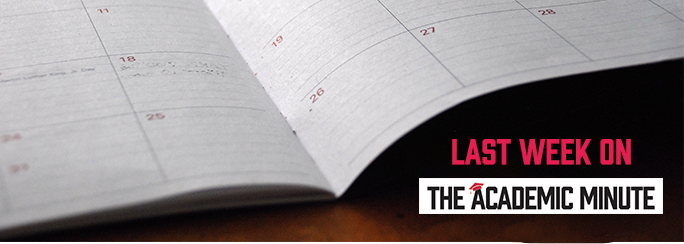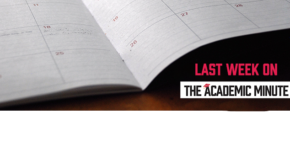
The Academic Minute from 5.22 – 5.26
Monday
Andrew Belnap – University of Texas at Austin
Are Tax Audits Bad for Business?
Andrew Belnap is an Assistant Professor of Accounting in the McCombs School of Business at the University of Texas at Austin. His research examines tax disclosure and tax enforcement issues, often in collaboration with key regulators, including the Internal Revenue Service and the Texas Comptroller of Public Accounts. His studies have been published in top accounting journals including the Journal of Accounting and Economics and the Review of Accounting Studies.
Tuesday
Elizabeth Dorssom – Lincoln University of Missouri
Why Do Legislatures Use Sunset Provisions?
Dr. Elizabeth Dorssom is an Assistant Professor of Political Science at Lincoln University of Missouri. Dr. Dorssom’s research focuses on the impact of resources on politics and policy. Specifically, I am interested in understanding how resources such as information, institutionalization, and professionalism impact policy adoption and feedback.
Wednesday
David Cingranelli – Binghamton University
The Need for Human Rights Report Cards
David Cingranelli is a Professor of Political Science. He has written widely on human rights, democracy, and governance. His 2007 book with Rodwan Abouharb, Human Rights and Structural Adjustment, (Cambridge University Press) demonstrated the negative human rights impacts of World Bank and IMF program lending in developing countries. He is a former President of the Human Rights Section of the American Political Science Association. Until 2012, he served as the co-director of the Cingranelli and Richards (CIRI) Human Rights Data Project, the largest and most widely used human rights data set in the world. Presently, he and Mikhail Filippov are working in collaboration with the United States Political Instability Task Force on a successor to the CIRI project, which will be called the “Rights” data project.
Thursday
Tripti Bhattacharya – Syracuse University
Clues from the Pliocene
My research focuses on understanding the sensitivity of regional rainfall to global climate change. I use a variety of methods, ranging from geochemical and biological proxies to climate models. My work focuses on a paleoclimatic perspective, whereby past instances of climate change can be used as ‘natural experiments’ to understand the response of the atmosphere-ocean system to external forcing.
Friday
William Herbert – Hunter College
50 Years of Collective Bargaining in Higher Education
William A. Herbert is a Distinguished Lecturer and Executive Director of the National Center for the Study of Collective Bargaining in Higher Education and the Professions, Hunter College.
His scholarship examines higher education unionization, public sector labor law, policy and history, and workplace surveillance technologies. Prior to joining the Hunter College faculty, Mr. Herbert was Deputy Chair of the New York State Public Employment Relations Board. Before his tenure in state govenment, he practiced labor and employment law for over two decades in federal and state courts, administrative agencies, and in arbitration.
Mr. Herbert is a graduate of the University at Buffalo and the Benjamin N. Cardozo School of Law, Yeshiva University.
